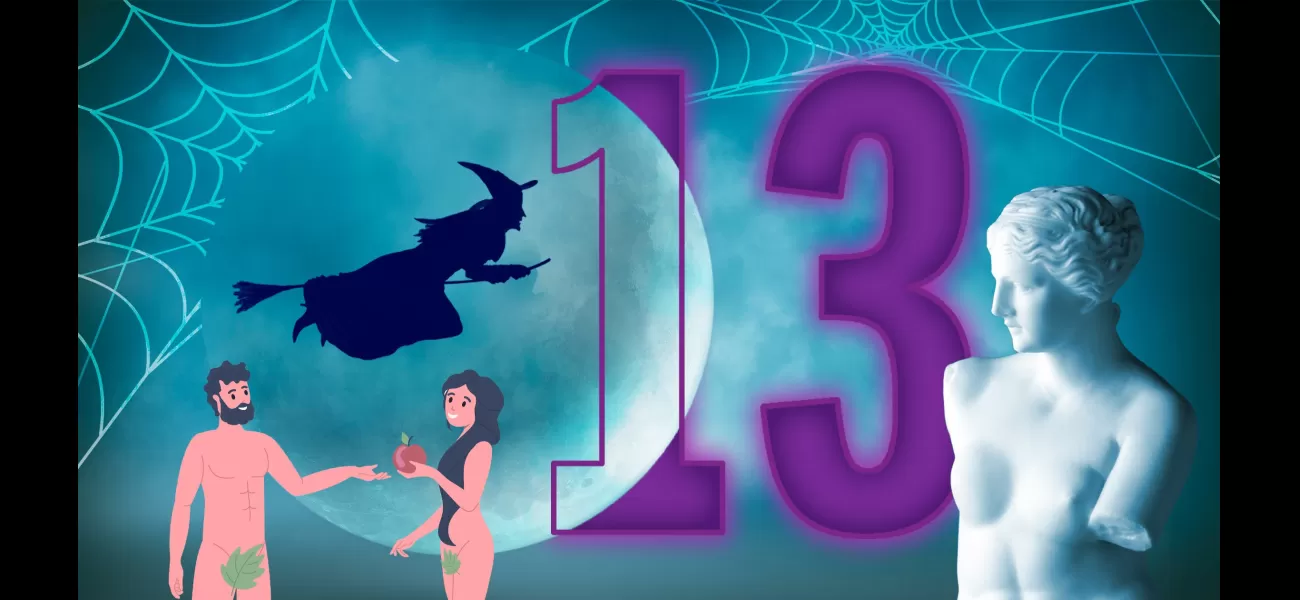Friday 13th is a day of heightened gender inequality, with women more likely to be victims of violence.
Thousands of years ago people believed certain superstitions.
October 13th 2023.

Friday 13th is one of those dates that brings with it a wave of superstition and fatalism. Every year, it is estimated that the US economy loses up to $900 million due to people avoiding certain tasks, staying indoors, and rescheduling flights.
The fear of this date has even earned its own name; friggatriskaidekaphobia and paraskevidekatriaphobia. But what are the exact origins of this superstition? It turns out, it may be rooted in sexism.
The fear of Friday 13th can be traced back to ancient civilisations. In Norse mythology, Loki was excluded from a feast in Valhalla with 12 attendees, so he arranged for Balder, the god of light and beauty, to be killed in retaliation. In Christianity, Judas Iscariot was the 13th guest at the Last Supper, while Jesus was crucified on a Friday.
Futurist and holistic intuitive Gina Spriggs has suggested that these events may carry misogynist undertones. She suggests that the Bible implies Eve was to blame for ‘original sin’, and that Adam was kicked out of paradise on a Friday.
But the sexism may go back further than that. Sally Howard, feminist journalist and author, suggests that the number 13 was associated with the feminine due to its connection to the moon and menstrual cycle, and that Friday was linked to the Norse goddess of motherhood, pleasure, magic and love, Frigg.
When Norse and Germanic tribes converted to Christianity, Frigg was banished in shame and labeled a witch. This is believed to be how the idea of Friday 13th being unlucky originated.
So, even though we may not consider the meaning behind the superstitions we uphold, it’s worth bearing in mind that they may have come from sexist views. The next time you touch wood, avoid walking under ladder, or salute a magpie, cast your mind back to the complicated lore of Friday 13th and how, for Eve, Venus, and Frigg, it was very unlucky for some.
The fear of this date has even earned its own name; friggatriskaidekaphobia and paraskevidekatriaphobia. But what are the exact origins of this superstition? It turns out, it may be rooted in sexism.
The fear of Friday 13th can be traced back to ancient civilisations. In Norse mythology, Loki was excluded from a feast in Valhalla with 12 attendees, so he arranged for Balder, the god of light and beauty, to be killed in retaliation. In Christianity, Judas Iscariot was the 13th guest at the Last Supper, while Jesus was crucified on a Friday.
Futurist and holistic intuitive Gina Spriggs has suggested that these events may carry misogynist undertones. She suggests that the Bible implies Eve was to blame for ‘original sin’, and that Adam was kicked out of paradise on a Friday.
But the sexism may go back further than that. Sally Howard, feminist journalist and author, suggests that the number 13 was associated with the feminine due to its connection to the moon and menstrual cycle, and that Friday was linked to the Norse goddess of motherhood, pleasure, magic and love, Frigg.
When Norse and Germanic tribes converted to Christianity, Frigg was banished in shame and labeled a witch. This is believed to be how the idea of Friday 13th being unlucky originated.
So, even though we may not consider the meaning behind the superstitions we uphold, it’s worth bearing in mind that they may have come from sexist views. The next time you touch wood, avoid walking under ladder, or salute a magpie, cast your mind back to the complicated lore of Friday 13th and how, for Eve, Venus, and Frigg, it was very unlucky for some.
[This article has been trending online recently and has been generated with AI. Your feed is customized.]
[Generative AI is experimental.]
0
0
Submit Comment





